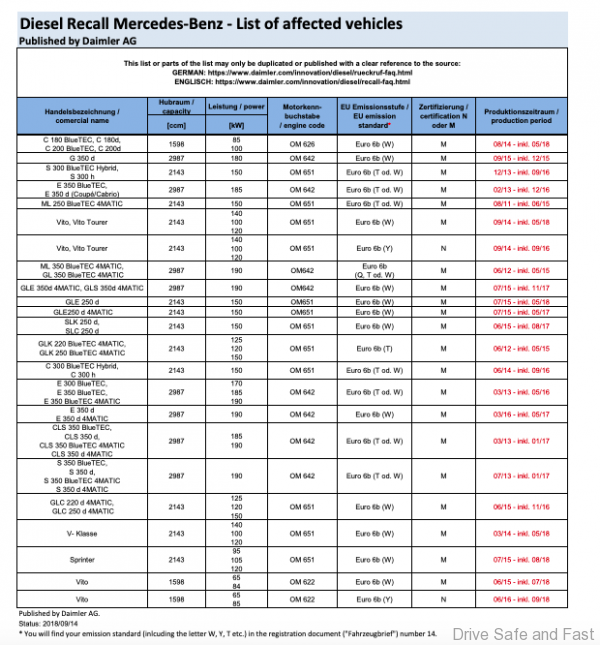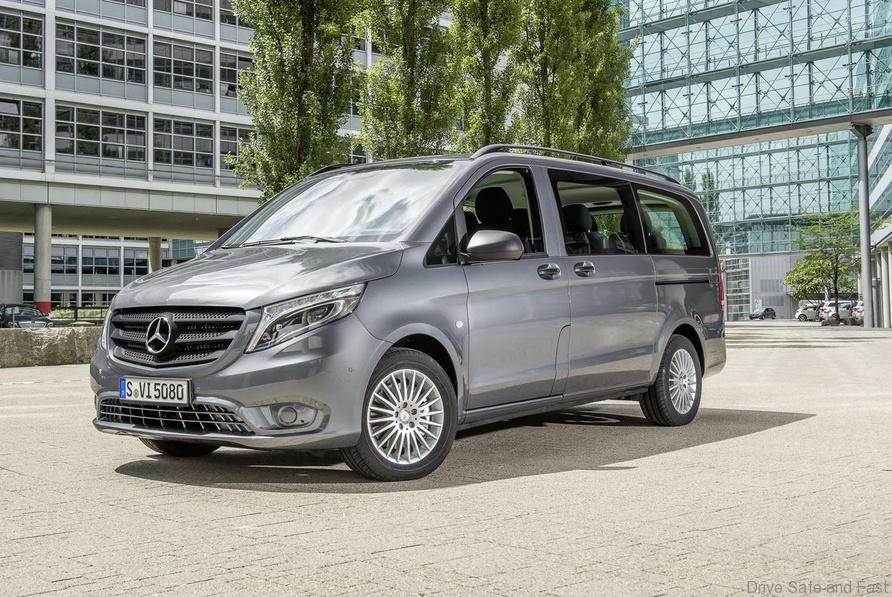Now this recall will be a hard fix for Malaysians who bought a grey import AP Mercedes because it is not an authorised Mercedes-Benz vehicle. How will they get their recall done at the approved Mercedes workshops. This is one of the many reasons why buying a ‘cheaper’ grey import AP vehicle is never a good thing as when there is a global recall by a vehicle manufacturer, the AP dealer who sold you the car will not be able to initiate the recall and will not have the facilities to work on the recall for you.
A diesel recall like this might not be serious enough for your attention, but what if it is a gearbox, ECU or even safety features recall? How will you continue to drive and use your car without the recall fix?
Press Release: Pursuant to an administrative order by the German Federal Motor Transport Authority (KBA) Daimler will conduct a mandatory recall for Mercedes-Benz vehicles with diesel engines in Europe. Approximately 670,000 vehicles are part of the recall in Europe. Thereof about 280,000 are located in Germany.
On this webpage below, you will find further information on affected vehicles on this topic. Additional details concerning the implementation of the recall will be provided shortly by the good people at Daimler.
The majority of vehicles were already part of the voluntary service action announced in summer 2017 for more than 3 million Diesel vehicles in Europe, which is continuing unchanged.

As already known, the recall ordered by KBA in 2018 applies solely to vehicles with the emission standard Euro 6b. The recall will mainly affect the following models: Vito 1.6-liter diesel (OM 622), C-Class 1.6-liter diesel (OM 626), ML/GLE/GL/GLS 3.0-liter diesel (OM 642), V-Class 2.2-liter diesel (OM 651) and GLC 2.2-liter diesel (OM 651). Some other individual models are also affected by the recall.

At the end of September, Daimler said it would not contest an order from Stuttgart prosecutors to pay an 870 million euro ($957 million) fine over hundreds of thousands of diesel vehicles that breached emissions rules.
The emissions-cheating scandal has had major repercussions for the car industry since it broke four years ago.
Some cars involved spewed out up to 40 times more harmful nitrogen oxide—linked to respiratory and cardiovascular diseases—than legally allowed.
To date in Germany, Volkswagen, Audi, BMW and Porsche have paid fines totalling 2.3 billion euros (USD2.5 billion) to settles probes into the companies for diesel emission issues and ‘cheat’ software.

